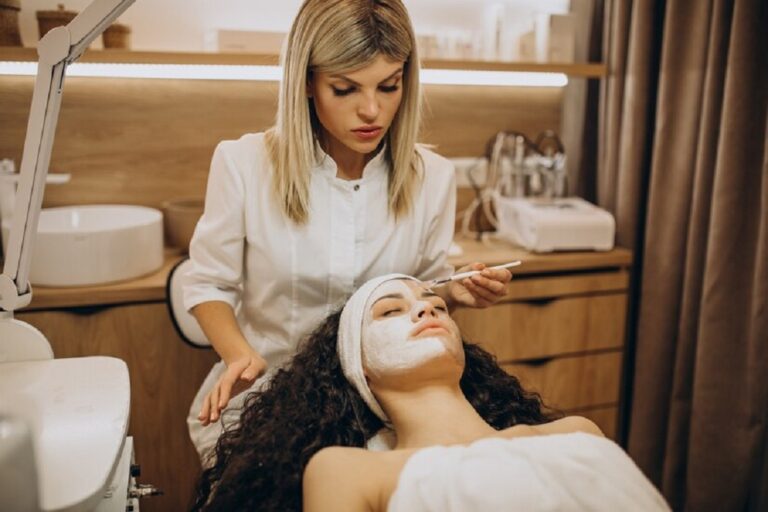
A unique organ is a skin. It serves as your body’s first defense against disease, protections your other organs, keeps you warm and cool and conveys information about your internal health.
Dermatologists are knowledgeable doctors with a focus on skin surgery. They possess the expertise and understanding required to offer the best care for the organ that watches after you.
What Does a Dermatologist Do?
More than 3,000 skin, hair, and nail disorders and aesthetic issues can be reliably diagnosed and effectively treated by a board-certified dermatologist due to their considerable training.
On any given day, if you were to observe a dermatologist at work, you might witness the following:
- Treat a baby’s noticeable birthmark if it risks the child’s vision.
- Please get rid of a mother’s fatal melanoma while it’s still treatable.
- Find the cause of a grandfather’s excruciating itching, a life-threatening liver ailment.
- A young woman’s hair loss can be treated, giving her the confidence to look for work.
Your dermatologist is skilled at distinguishing between minor and significant issues. Dermatologists know the harmful effects of skin conditions on your health and general well-being.
What Should I Ask My Dermatologist About?
There are many questions you can ask your dermatologist including what are causes of your acne, which type of cream you can use and the foods you should avoid etc.
In some cases, your dermatologist could be the first to recognize a skin disorder as a sign of a dangerous underlying health problem. For instance, the skin may exhibit symptoms of diabetes and heart disease.
The 5 Most Common Reasons To See A Dermatologist
Let’s see what are the most common things dermatologists treat.
1. An Annual Exam
An annual examination allows a specialist to examine your skin and correctly spot any problems. In addition, one in five people will develop skin cancer at some point in their lives.
Early detection is vital in treating many disorders effectively. Your doctor will also offer advice tailored to your skin at the annual physical.
2. Rashes, Warts, and Poison Ivy
Each person occasionally encounters minor skin anomalies. While some problems might resolve themselves, others, if left untreated, can linger for weeks, months, or even years. Most of these little flare-ups are not dangerous and, at worst, cause minor inconvenience.
It’s not a good idea to ignore these issues; you should seek treatment. You can receive the correct diagnosis and care when visiting your dermatological clinic. Additionally, you can confirm that your symptoms aren’t signs of a significant underlying problem.
3. Chronic Conditions
Rosacea, acne, eczema, and dry skin are a few examples of chronic illnesses that a doctor must treat if they are to get better.
Individuals experience different symptoms; some people only occasionally feel uncomfortable, while others find that their daily activities are negatively disrupted. Fortunately, they can be effectively treated with medication and lifestyle adjustments.
4. Product Recommendations
By visiting your dermatological office, you may better understand your skin and what it needs to look and feel its best.
A dermatological specialist can recommend particular items and write you a prescription for any that are off-the-shelf. You’ll avoid wasting time and money and perhaps even causing an adverse reaction.
5. Cosmetic Treatments
Getting professional care for your skin’s look is one of the most common reasons to see a dermatologist. Your dermatologist can assist you in achieving it by offering practical solutions.
Here are some most popular cosmetic procedures:
Facials
One of the most common procedures provided by dermatology clinics is the facial. They are a calming method to unwind, help your skin look better, and nourish it.
Beyond an aesthetic consideration, a facial can provide cleansing and unique nutrient-infused moisture treatments to promote the health of your skin.
Chemical Peels
You can radically exfoliate your skin with chemical peels and observe changes in melasma, acne, and age symptoms. They can be light or intense and typically come with take-home packages that contain after-care items.
Micro-Needling
Our ability to produce collagen and elastin declines as we age. As a result, our faces start to show more signs of wrinkles and scarring. Many patients use micro-needling to replenish these two proteins.
To re-establish the production of collagen and elastin, this incredibly successful treatment employs the delicate application of tiny needles. In this approach, your skin’s natural activities can decrease the visibility of scars and wrinkles.
Laser Treatments for the Face
Laser treatments are a perfect alternative to chemical peels and micro-needling for those who seek a professional solution for problems including acne scars, age spots, uneven texture, fine lines, and wrinkles.
With the aid of light technology, a thin layer of damaged skin cells will be removed as part of this treatment.
What Are the Most Common Dermatology Diagnoses?
The most common Dermatology diagnoses are acne, benign neoplasm of the skin, actinic keratosis, and epidermoid cysts. These are the most common skin diagnoses.
For Attractive, Healthy Skin, Visit a Dermatologist
The field of dermatology is broad and highly specialized. Dermatologists help to keep you feeling and looking your best with cancer tests and aesthetic procedures.
Your skin contributes significantly to your overall health and demands regular attention. Your bodies outside look reflects your internal well-being and beauty.